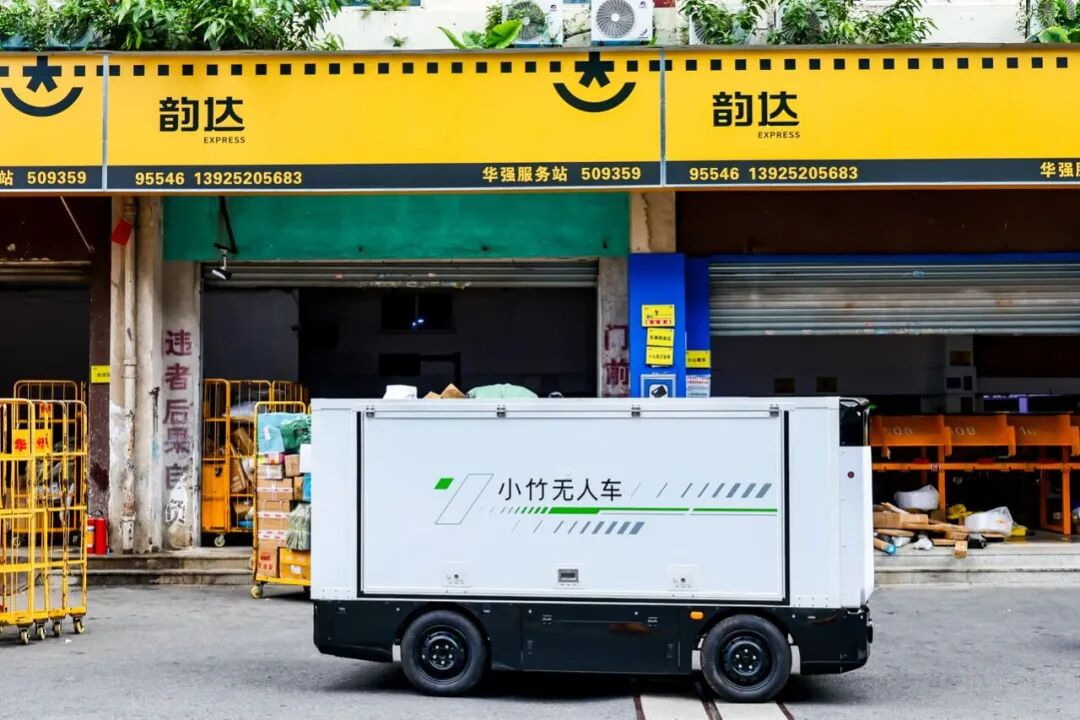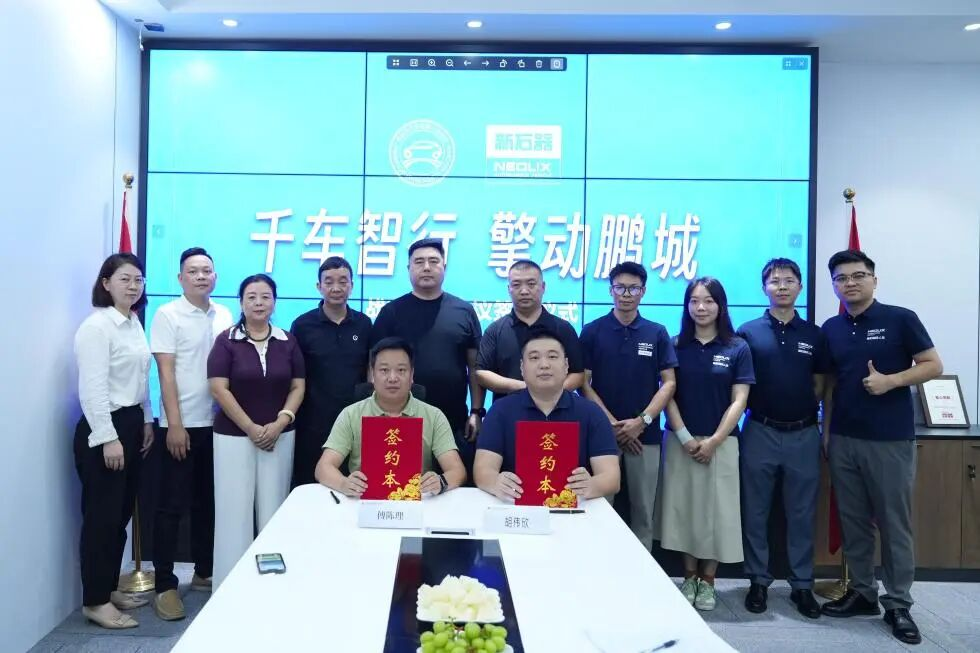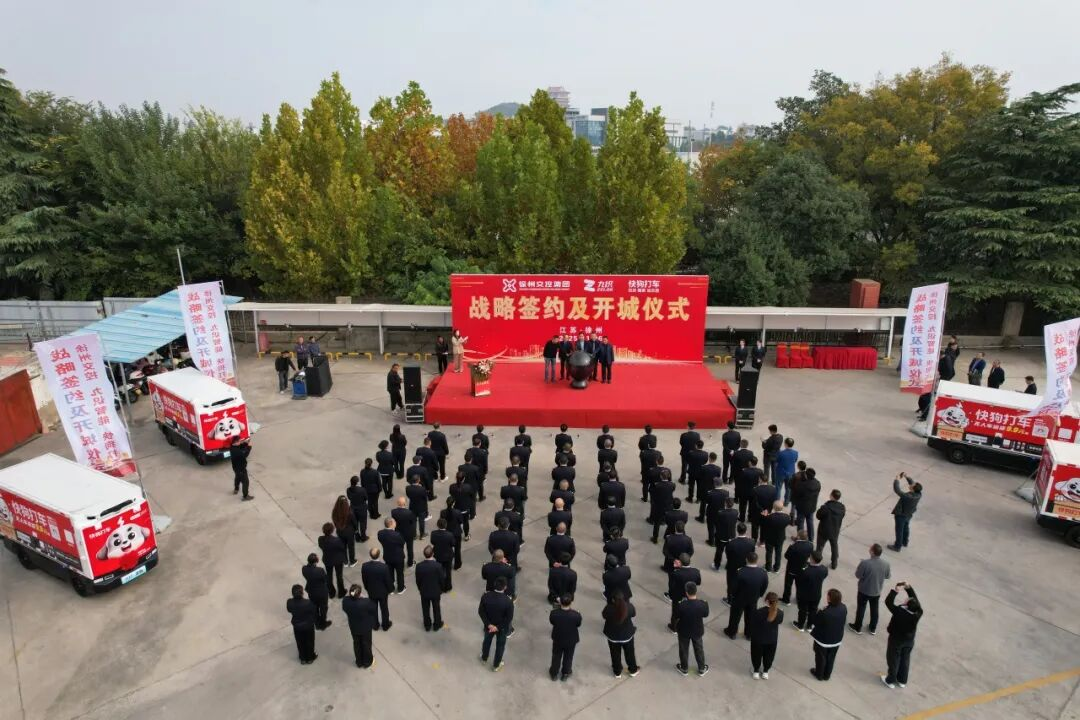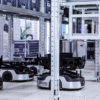According to China Low-speed Automated Driving Industry Alliance (LSAD), MINIEYE recently announced a business partnership with Shanghai Master New Energy Technology Co., Ltd. and its subsidiary, Master Smart (Shanghai) Equipment Co., Ltd., securing an order for 500 Xiaozhu T5 unmanned logistics vehicles. The first 100 units will be delivered starting in January 2026.
This is MINIEYE‘s second order of around 100 units announced this month. On November 2, MINIEYE announced a formal partnership with Hunan XYXC ICCW Technology Co., Ltd., a wholly-owned subsidiary of Hunan Xiangjiang Intelligent Science and Technology Innovation Center Co., Ltd. The two parties agreed that by the end of 2026, MINIEYE would deliver 100 unmanned logistics vehicles and supporting software systems to ICCW, covering the Xiaozhu T5 and T8 unmanned vehicles, as well as newly launched iterative products during the cooperation period.
With these orders from Shenzhen Post, ICCW, and Master, MINIEYE is one step closer to its goal of delivering 10,000 Xiaozhu unmanned vehicles next year.

In fact, besides MINIEYE, the unmanned delivery sector has seen a surge in orders for hundreds, thousands, and even tens of thousands of vehicles this year, indicating explosive growth in the unmanned delivery market.
For example, in April, Neolix signed a strategic cooperation agreement with ZTO Express, planning to invest in 10,000 unmanned delivery vehicles; in July, Neolix signed a strategic cooperation agreement with Shenzhen Car Rental Industry Association. According to the agreement, Shenzhen Car Rental Association and its partners will purchase a total of 1,000 Neolix unmanned vehicles and related technical services to improve the overall transportation capacity structure and operational efficiency of the industry.
Furthermore, according to LSAD, Neolix already has orders for approximately 5,000 vehicles in overseas markets; its cooperation with Didi Delivery has exceeded 1,200 vehicles and continues to expand. Overall, Neolix currently has nearly 30,000 vehicles on order.

Neolix Reached a Strategic Cooperation with Shenzhen Car Rental Association
In September, Electric Hydrogen Intelligent Transport signed a strategic cooperation agreement with Leascend Photovoltaic Technology Co., Ltd and Chengdu Xinsheng Energy Co., Ltd. The three-party cooperation plan aims to deploy over 1,000 autonomous vehicles within three years, covering more than 50 logistics operation scenarios, including large-item logistics, parts logistics, and cold chain transportation, comprehensively improving logistics operational efficiency and intelligence.

Electric Hydrogen Intelligent Transport signed a strategic cooperation agreement with Leascend Photovoltaic Technology and Xinsheng Energy
In the same month, Zelos partnered with the Roads & Transport Authority, Dubai, agreeing to deploy over 1,000 autonomous logistics vehicles in the Middle East to create the world’s largest comprehensive autonomous driving test zone. In October, Zelos secured over half of a 7,000-vehicle order from China Post. In November, Zelos, Xuzhou Public Transport Group, and GOGOX HOLDINGS LIMITED officially reached a cooperation agreement, planning to deploy 1,000 autonomous vehicles to jointly create a benchmark application for autonomous vehicle freight transportation.

Zelos, Xuzhou Public Transport Group, and GOGOX HOLDINGS LIMITED officially reached a cooperation agreement
In addition to the above-mentioned large-scale cooperation orders, deployment plans by several logistics companies and local governments this year have also attracted significant industry attention.
For example, JD.com plans to purchase 1 million unmanned delivery vehicles over the next five years; J&T Express plans to add 3,000 vehicles by 2025; SF Express plans to increase its fleet to 8,000 vehicles; STO Express expects to invest 2,000 vehicles this year; and YTO Express plans to increase its fleet to over 1,000 vehicles this year…
Regarding deployment plans by local governments, Shandong Province has proposed that the number of unmanned delivery vehicles in use will be no less than 1,500 by 2025; Jinan City plans to deploy 100 unmanned delivery vehicles in its initial development area by 2026; Suzhou City announces that it will deploy no less than 1,600 unmanned delivery vehicles by 2026; Suining City expects to have at least 200 unmanned delivery vehicles deployed by the end of 2025; and Zibo City has also announced that it will deploy 1,200 low-speed unmanned delivery vehicles throughout the city by 2027…
Conclusion
The active deployment by end-user companies and local governments provides strong support for the large-scale implementation of the unmanned delivery industry. These clear goals and plans are attracting more companies to increase their investment in the field of unmanned delivery, driving continuous innovation and breakthroughs in related technologies.
At the same time, the large-scale deployment plan will also drive the coordinated development of the entire low-speed autonomous driving industry chain, forming a more complete industrial ecosystem, further reducing the deployment costs of various functional autonomous vehicles, including unmanned delivery vehicles, and improving the quality and efficiency of urban intelligent services.
——————————————————————————————————————————————————————————————————————————————

2025 Shenzhen International Artificial Intelligence Sanitation Robot Competition-cum-Application Innovation Competition will be held at Shenzhen University of Information Technology from November 26 to 29, 2025.
For details, please click https://cnmra.com/shenzhen-international-artificial-intelligence-sanitation-robot-competition-2025-will-be-held-in-shenzhen-from-november-26-to-29-2025/.




探索者论坛-scaled.jpg)
